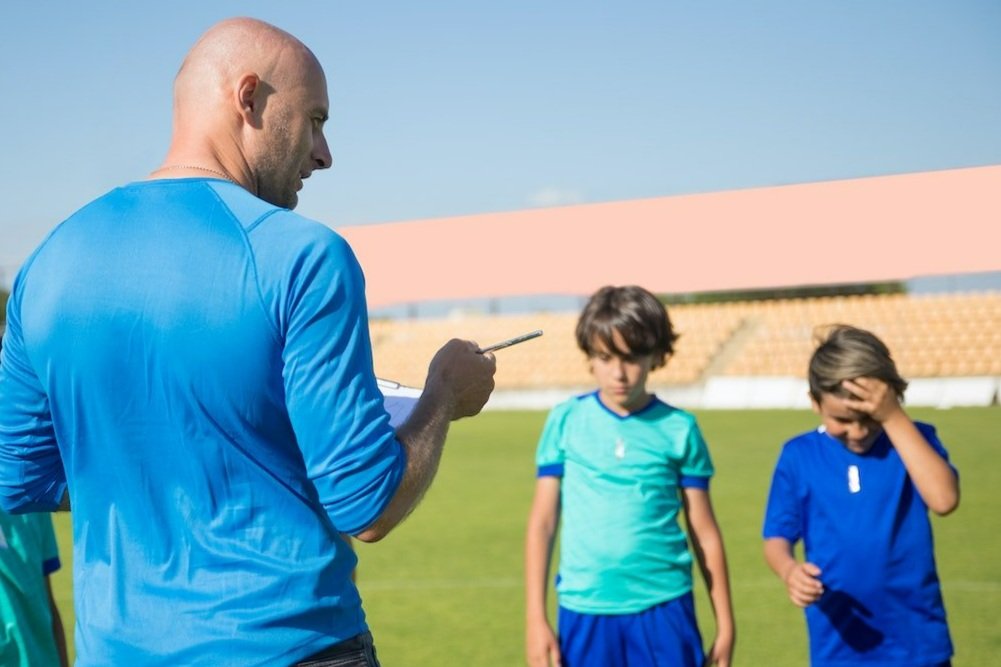Tryouts: Mental Preparation and Strategies for Success
Soccer tryouts can be a stressful and challenging experience for players of all ages and skill levels. However, mental preparation is just as important as physical preparation when it comes to performing at your best during tryouts. In this article, we will discuss strategies and techniques to help you mentally prepare for soccer tryouts, so you can approach the experience with confidence and calmness. Let’s dive in.
Set Realistic Goals and Expectations
Before the tryout, take some time to reflect on your strengths and areas for improvement. Set realistic goals for yourself and focus on what you can control, such as your effort, attitude, and preparedness. Avoid putting too much pressure on yourself to perform perfectly, as this can lead to anxiety and hinder your performance.
Visualization
Visualization is a powerful mental technique that involves mentally rehearsing specific situations and positive outcomes. In the days leading up to the tryout, spend some time visualizing yourself performing well in various drills and game scenarios. Imagine yourself executing skills with precision, communicating effectively with teammates, and responding positively to feedback from coaches. This mental rehearsal can help build confidence and prepare you for the actual tryout.
Develop a Pre-Tryout Routine
Establishing a pre-tryout routine can help reduce anxiety and create a sense of familiarity and control. This routine may include a specific warm-up sequence, deep breathing exercises, or listening to your favorite pump-up music. Experiment with different routines to find what works best for you, and practice it before the tryout to help you feel calm and focused.
Focus on the Present Moment
During the tryout, it's essential to stay focused on the present moment and avoid getting caught up in negative thoughts or worries about the outcome. If you find your mind drifting to unhelpful thoughts, try using a mental cue or mantra, such as "one play at a time" or "stay present," to refocus your attention on the task at hand.
Embrace Challenges and Adversity
Tryouts can be unpredictable, and it's important to be prepared to face challenges and adversity with a positive mindset. If you make a mistake or encounter a difficult situation, view it as an opportunity to learn and grow. Remain composed and focused on your next move, rather than dwelling on past mistakes. Often coaches look to see how you recover from a mistake. They look to see if the player is checking to the ball, if he is looking like he wants it , so make sure you don’t start hiding if you made a mistake.
Use Deep Breathing Techniques
Deep breathing exercises are a simple but effective way to calm nerves and improve focus. When you feel anxious or stressed during the tryout, take a moment to practice deep, controlled breaths. Inhale slowly through your nose for a count of four, hold the breath for a count of four, and exhale through your mouth for a count of four. Repeat this process several times to help you regain composure and mental clarity.
Build a Support Network
Surround yourself with supportive friends, family members, and teammates who can offer encouragement and advice leading up to the tryout. Share your goals and concerns with them and lean on their support to help you stay positive and focused.
Michael Cunningham (7MLC) Perspective
Michael Cunningham, a prominent figure in the world of soccer, is known to many as 7mlc. With his extensive experience and knowledge of the game, Cunningham has become a leading voice in soccer development. Through his content, 7mlc addresses the issue of sports performance anxiety, or "choking," and provides advice on how to overcome it during trials. He shares his personal experiences and insights, acknowledging that he has had both successful and unsuccessful trials in his career. Cunningham emphasizes the importance of adopting a "nothing to lose" mentality to cope with performance anxiety.
He highlights two common causes of sports performance anxiety: playing in front of an audience (scouts and coaches) and having high expectations of success (getting signed by a team). Cunningham stresses that the key to managing anxiety is to focus on what can be controlled, such as work rate, communication, and decision-making, rather than worrying about the outcome.
Cunningham offers several techniques to help manage sports performance anxiety before, during, and after trials:
Before the Trial
Accept nerves as a natural part of the process.
Be prepared by arriving early, warming up, and dressing appropriately.
Visualize success by mentally rehearsing positive scenarios.
During the Trial
Be present by staying in the moment and avoiding thoughts about the future.
Force a smile to release positive endorphins and reduce stress.
After the Trial
Focus on the positives by acknowledging mistakes but quickly moving on.
Accept the outcome, understanding that coaches' opinions are subjective.
Cunningham concludes by reminding players that there is no failure, only learning. He encourages aspiring soccer players to take these words into account and use the suggested techniques to reduce stress and anxiety during trials. By incorporating these ideas into our advice, we can see how professional athleates take seriously the importance of mental preparation and resilience together with having a positive mindset when facing high-pressure situations like trials.
The Bottom Line
Mental preparation is a critical component of success in soccer tryouts. By setting realistic goals (not shooting for a perfect tryout), visualizing success, developing a pre-tryout routine you already improving your chances for success. Focus on the present moment, embrace the challenge, use deep breathing techniques to calm your nerves. Remember, the key to a successful tryout is to stay positive, focus on doing your best and not on being perfect, and try to enjoy the experience without making too big of a deal about it. Also know that your entire soccer career doesn’t depend on a soccer tryout. Ultimately things tend to work out and you will most likely end up at a place that suits your level.

